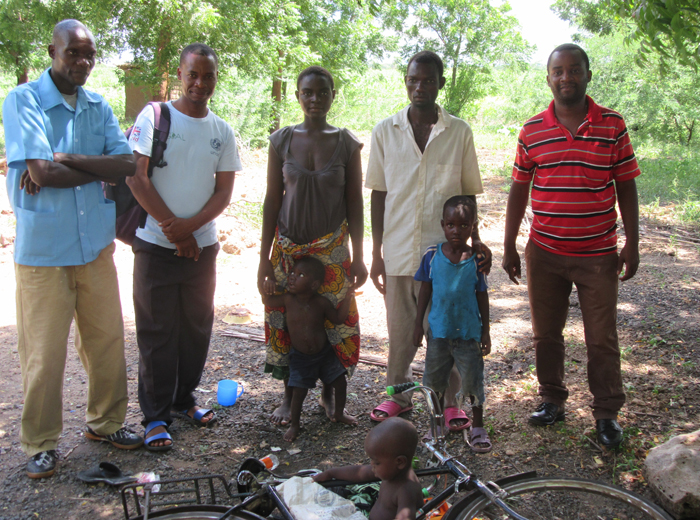Evidence to Action: Reflections from Malawi
Workshop participants and facilitators at the University of Malawi - Polytechnic. Credit: SHARE
After a bumpy touchdown at Blantyre Airport (the runway is surprisingly short!), I was feeling excited about my week ahead. My colleague Emily Balls and I had travelled to Blantyre to work with our partners at the University of Malawi – Polytechnic, who will be conducting a behaviour change intervention to improve WASH and food hygiene for children under five. While we were in Blantyre, we ran a series of workshops and presentations on research uptake and M&E for academics and NGO practitioners in the WASH sector.
A matter of semantics
Before getting into the nitty-gritty of research uptake approaches and challenges, I asked our workshop participants to discuss the difference between research dissemination and research communication. This triggered much discussion – some people saw these terms as interchangeable, while others discussed differences of one-way versus two-way messages. Typically, dissemination is a one-way process to project your message through various channels (eg. TV, radio or conferences). Research communication, on the other hand, often involves input and feedback from the listener, and is seen as a two-way process.
Interestingly, no participants working in WASH in the NGO sector in Malawi had previously heard the term ‘research uptake’. People were more familiar with the ideas of translating research to policy and practice, or getting research into use.
Fighting an uphill battle?
Many participants, both in academia and in the NGO sector, had some experience of trying to engage policymakers in their work. But this is never an easy process. Some of the key challenges mentioned included the short-term agendas of politicians in office, which often contrasted to a longer-term research agenda. Others highlighted the difficulties of capturing the attention of policymakers, and bringing together the right people in a room. Participants commented that a multi-pronged approach is often the best way to reach policymakers, donors and other stakeholders.
Unpicking policy briefs
From technical working groups to Twitter, there are a huge number of ways to engage policymakers. One of the more traditional (yet often most effective) formats is policy briefs. A study conducted by ODI in 2008 showed that 79% of policy actors from both developing and developed countries rated policy briefs as a ‘key tool’. We discussed many different aspects of policy briefs, including their purpose, structure, audiences, tone and style.
Participants then came up with topics for policy briefs relevant to their work. It was great to hear about a diverse number of topics – from menstrual hygiene management to the sanitation of water points. One participant identified the need for a policy brief on resource allocation for sanitation and hygiene. Currently, only 0.02% of the planned government spending is allocated to WASH, according to Government Spending Watch (2015). The brief would target the Ministry of Water, the district government and would involve the Malawian Water and Sanitation Network (WESNET).
Understanding the research

At the end of the week, we visited the project site where the formative research is kicking off. The intervention will be conducted in a rural setting in the Chikwawa district in the southern part of Malawi. We met a village chief, who then introduced us to a family that will form part of the observation group. There were several young children in this particular family, but the data collectors will only be observing the food hygiene and WASH practices for the youngest child.
Meeting the research participants in the study area really helped me to understand the context of the work, and gave me hope that the community would be fully engaged in the research project. It also brought home the importance that research and evidence can have in improving people’s lives.
